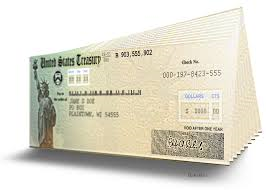IRS Announces Online Security Breach
On Tuesday, May 26, 2015, the IRS announced the detection of a huge security breach affecting over 100,000 United States taxpayers. This appears to be a significant online breach that occurred during the course of the 2015 tax season. According to the IRS, thieves used an online IRS agency service to obtain the previous year’s tax return information for about 100,000 individuals and families.
These identity thieves have been very persistent and sophisticated. From February to May, they have been using stolen social security numbers and other relevant personal information to access tax agency systems in order to file tax returns and get refunds. IRS Commissioner John Koskinen issued a statement saying that approximately 200,000 tax transcripts were downloaded with approximately 104,000 of those successfully accessed. Apparently the attempts by the thieves to gain access to the remainder of the downloaded returns were unsuccessful. However, the IRS plans to inform all 200,000 taxpayers whose returns were in any way involved in the breach.
This is not a typical hack or data breach involving one account number or piece of personal information. Instead, these thieves are sitting on piles of personal information that they can use at any time. In order to access the desired accounts, they had to clear a multi-phase questionnaire which involved providing such information as the taxpayer’s social security number, birthdate, address and tax filing status. Even more puzzling is the fact that the thieves had to answer personal questions about such things as the maiden name of the taxpayer’s mother, their high school mascot and where they attended college. The IRS believes that the thieves obtained some of this information by looking at public social media sites.
The thieves were hoping that their criminal efforts would go undetected by the IRS and that they would gain access to full tax returns that would give them vital personal information to use in the future. However, their attempts to stay under the radar have failed. The IRS has identified, not only those 104,000 tax returns that were actually accessed, but also the 100,000 returns where access was attempted but unsuccessful. They have responded by providing free credit monitoring services to all of the taxpayers that were in any way affected by the breach. According to IRS officials, the budget cuts that they have recently experienced have made it increasingly difficult to fight the fraud issues that have been occurring at a rapid rate over the last several years.
If you have tax questions or a tax debt you are unable to pay, our tax settlement professionals are happy to discuss your tax resolution options free of charge. For more information about our services, visit us today at www.professionaltaxresolution.com or call us at 877.889.6527. With over 16 years in the business of resolving tax debt, we have a thorough understanding of tax law together with the experience to know which settlement option will be the best fit for your specific set of circumstances.



